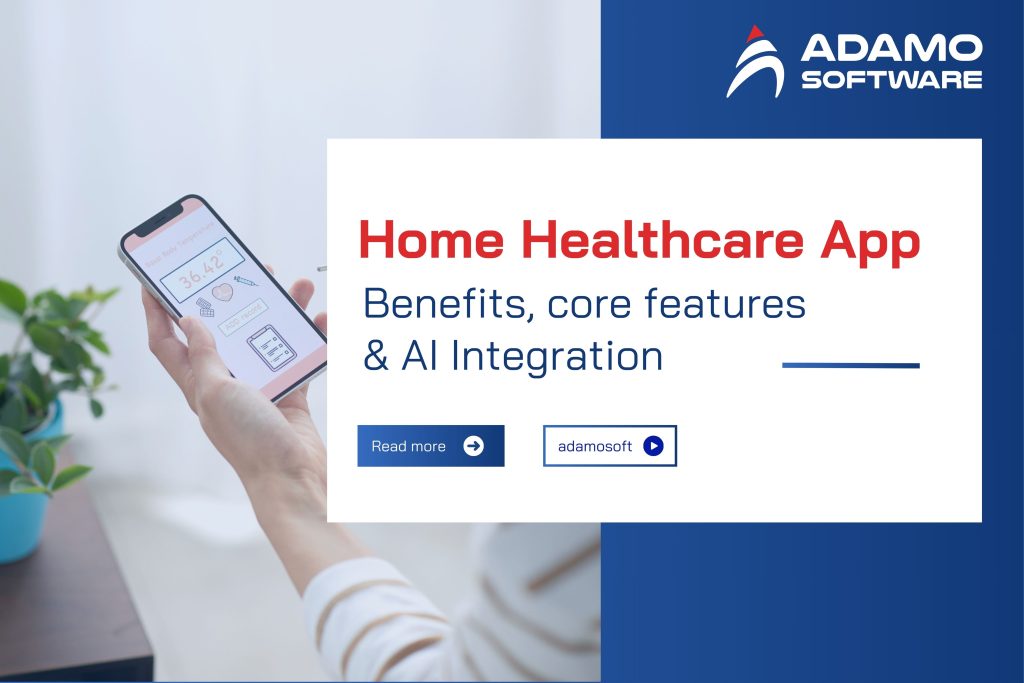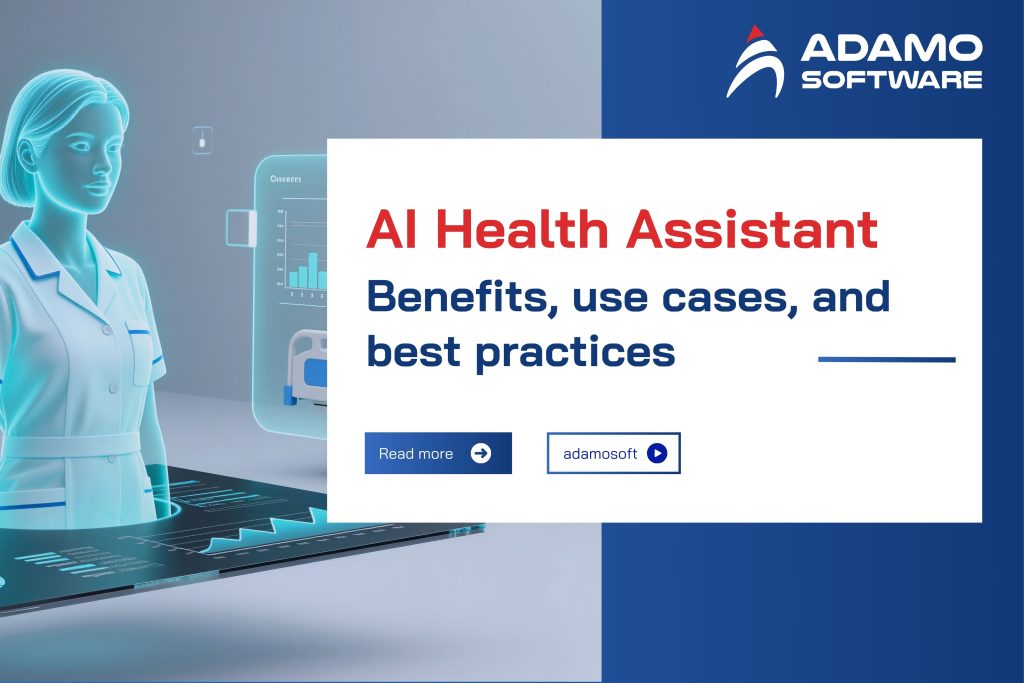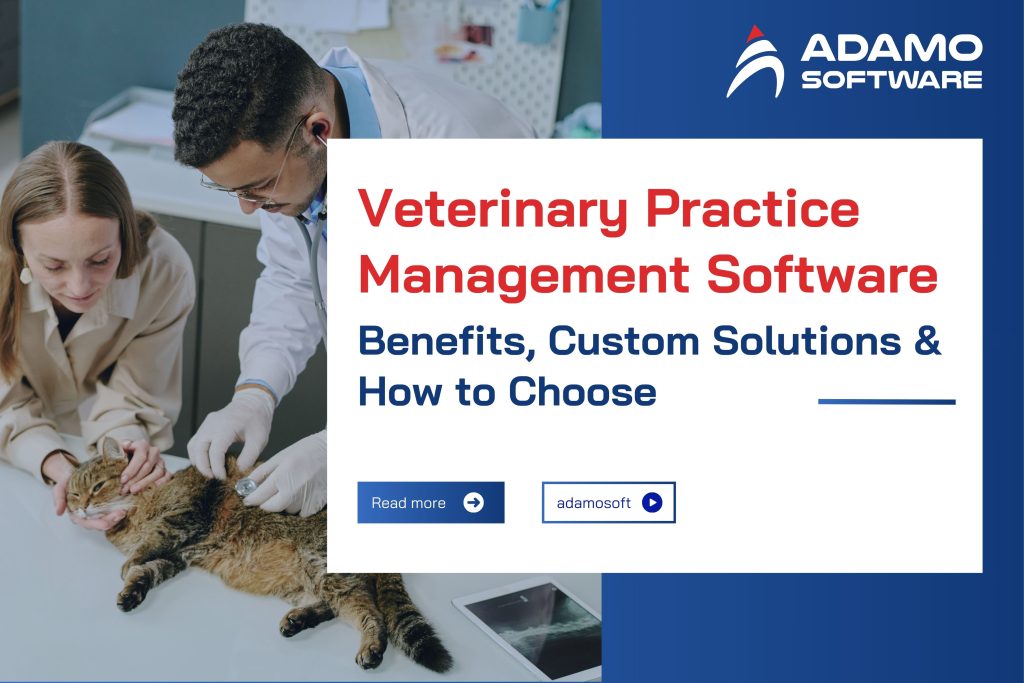Challenges of Healthcare Software Compliance in Australia – And How to Overcome Them
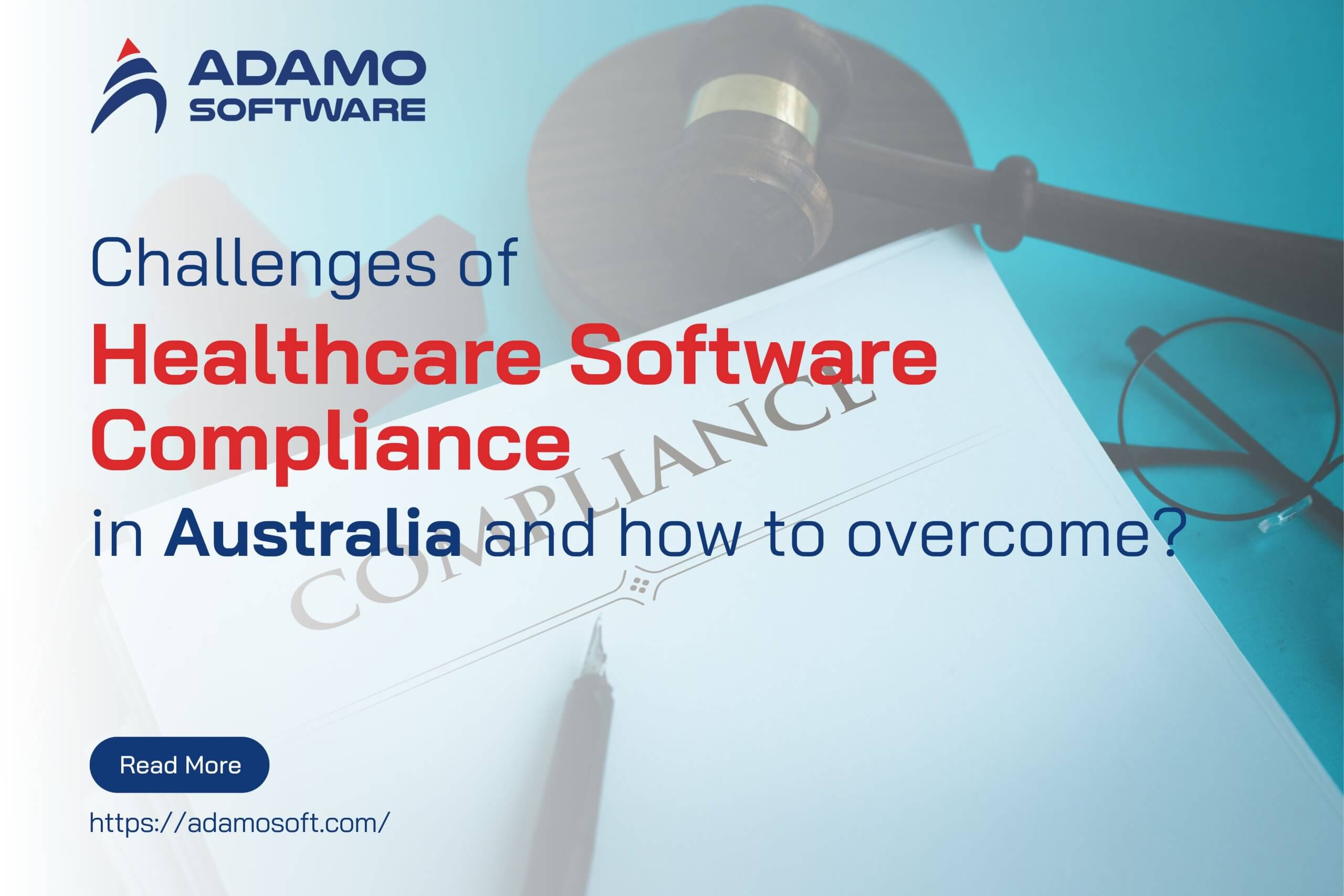
Discover the key challenges of healthcare software compliance in Australia and unlock effective solutions, including outsourcing to Vietnam with Adamo Software, to ensure seamless regulatory success.
In Australia, healthcare software compliance is a critical yet challenging aspect of delivering safe, efficient, and innovative digital health solutions. With the healthcare industry undergoing a rapid digital transformation, software developers and providers must adhere to stringent regulations to protect patient data, ensure system interoperability, and maintain high standards of care. However, achieving compliance in this dynamic environment is no easy feat. From navigating complex regulatory frameworks to addressing technical and cultural barriers, Australian healthcare organizations face significant hurdles.
This blog explores the primary challenges of healthcare software compliance in Australia and offers actionable solutions to overcome them. Among these solutions, outsourcing to Vietnam, particularly with trusted partners like Adamo Software, emerges as a strategic approach to streamline compliance efforts while leveraging cost-effective, high-quality development expertise. Let’s dive into the challenges and discover how Australian companies can thrive in this regulated landscape.
I. Understanding Healthcare Software Compliance in Australia
Before diving into the challenges, it’s essential to define what compliance means in the Australian contact.
Unlike general software, healthcare applications are often classified as Software as Medical Device (SaMD) by the Therapeutic Goods Administration (TGA). This means they are subject to:
- TGA regulations and classifications.
- Privacy and data security requirements under the Privacy Act 1988 and Australian Privacy Principles (APPs).
- Interoperability standards, like HL7 and FHIR, especially when integrating with My Health Record.
- Clinical risk management and documentation standards like ISO 13485, ISO 14971, and IEC 62304.
These standards demand not only technical compliance but also deep domain expertise in heathcare workflows.
II. The Challenges of Healthcare Software Compliance in Australia
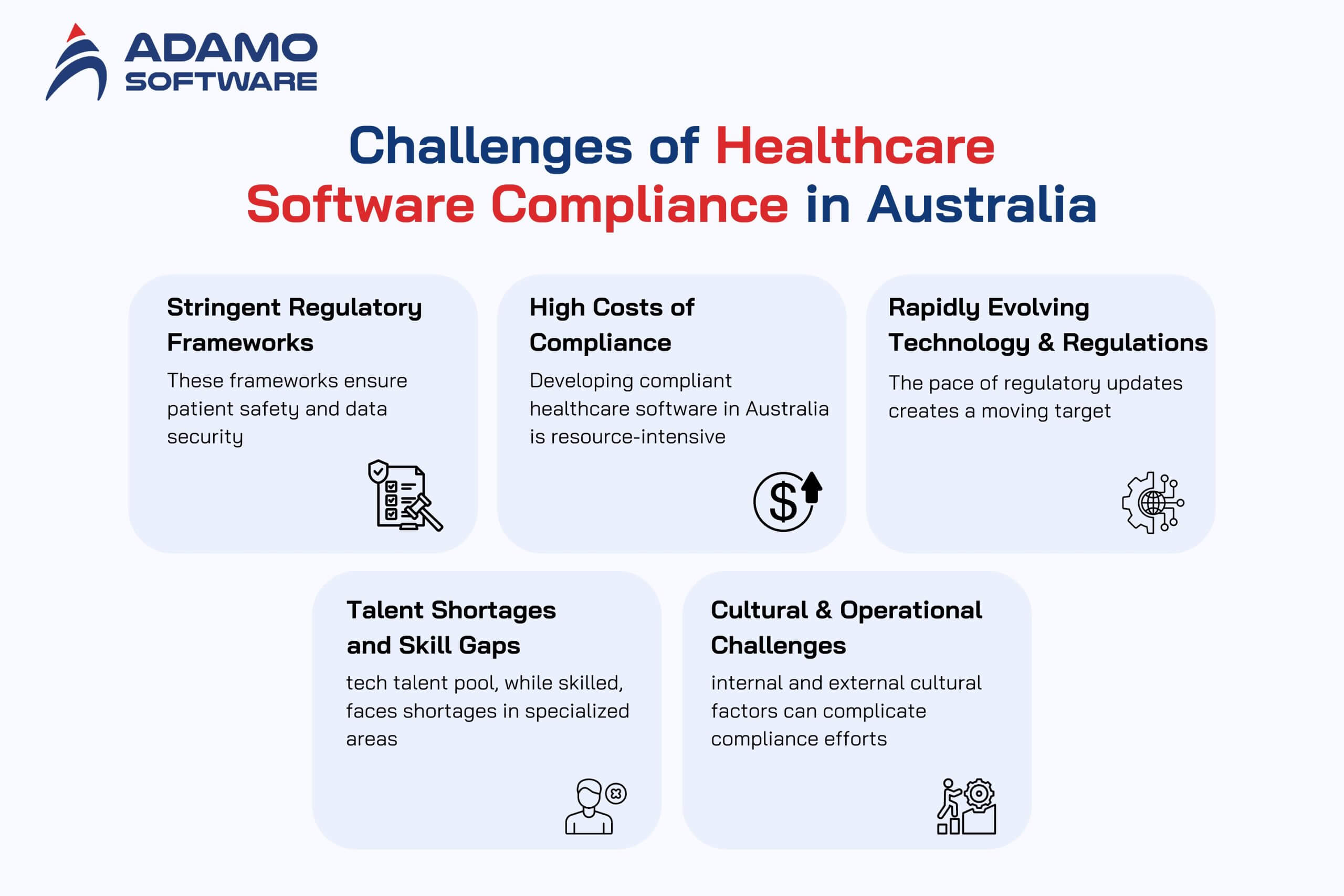
1. Stringent Regulatory Frameworks
Australia’s healthcare sector is governed by a robust set of regulations, including the Therapeutic Goods Administration (TGA) guidelines, the Australian Privacy Principles (APPs), and the My Health Record system requirements. These frameworks ensure patient safety and data security but pose significant challenges for software developers:
- Complex TGA Requirements: Software classified as a medical device must comply with TGA’s rigorous standards, including risk assessments, clinical evaluations, and post-market surveillance. Navigating these requirements demands specialized expertise and resources.
- Data Privacy Compliance: The APPs, under the Privacy Act 1988, mandate strict handling of personal and sensitive health information. Non-compliance can result in hefty fines and reputational damage.
- Interoperability Standards: The Australian Digital Health Agency (ADHA) emphasizes interoperability to ensure seamless data exchange across healthcare systems. Achieving compliance with standards like FHIR (Fast Healthcare Interoperability Resources) requires advanced technical capabilities.
Impact: These regulations, while essential, increase development time, costs, and the risk of non-compliance, especially for organizations with limited in-house expertise.
2. High Costs of Compliance
Developing compliant healthcare software in Australia is resource-intensive. Key cost drivers include:
- Specialized Talent: Hiring regulatory experts, cybersecurity specialists, and experienced developers is expensive, with Australia’s high labor costs adding to the burden.
- Testing and Validation: Rigorous testing, including usability studies and security audits, is mandatory to meet compliance standards, further escalating costs.
- Ongoing Maintenance: Post-deployment, software requires continuous updates to align with evolving regulations, adding to long-term expenses.
Impact: For small to medium-sized enterprises (SMEs) and startups, these costs can be prohibitive, limiting their ability to innovate and compete.
3. Rapidly Evolving Technology and Regulations
The pace of technological advancement and regulatory updates creates a moving target for compliance:
- Emerging Technologies: Integrating AI, telehealth, and IoT into healthcare software introduces new compliance challenges, as regulations struggle to keep up with innovation.
- Frequent Regulatory Updates: Changes to TGA guidelines, privacy laws, or ADHA standards require developers to adapt quickly, often mid-project.
- Global Alignment: Australian software must often align with international standards (e.g., HIPAA for U.S. markets or GDPR for Europe), adding complexity for companies targeting global expansion.
Impact: Keeping up with these changes demands agility and expertise, which can strain internal teams and divert focus from core development.
4. Talent Shortages and Skill Gaps
Australia’s tech talent pool, while skilled, faces shortages in specialized areas like healthcare software development:
- Regulatory Expertise: Few professionals possess a deep knowledge of both healthcare regulations and software engineering.
- Cybersecurity Skills: With cyber threats on the rise, demand for experts in secure software design outstrips supply.
- Scalability Issues: Scaling development teams to meet project deadlines is challenging in a competitive labor market.
Impact: Talent shortages lead to project delays, increased costs, and potential compliance risks due to inadequate expertise.
You can explore more about “Outsourcing Healthcare Software Development: When it works” here.
Ready to Outsource?
Discover how we can transform your business with expert IT solutions.
5. Cultural and Operational Challenges
For Australian companies, internal and external cultural factors can complicate compliance efforts:
- Stakeholder Alignment: Coordinating between developers, healthcare providers, and regulators requires clear communication, which can be hindered by differing priorities.
- Risk-Averse Culture: Australia’s healthcare sector is highly risk-averse, leading to conservative approaches that slow innovation.
- Consumer Expectations: Patients expect user-friendly, secure, and accessible software, adding pressure to balance compliance with usability.
Impact: Misalignment and cultural barriers can delay projects and increase the likelihood of non-compliance.
III. Solutions to overcome Healthcare Software Compliance changes
To address these challenges, Australian healthcare organizations must adopt strategic approaches that balance compliance, cost, and innovation. Below are key solutions, with a focus on outsourcing to Vietnam as a game-changing strategy.
1. Invest in Specialized Expertise
Building in-house expertise is ideal but costly. Instead, organizations can:
- Partner with Consultants: Engage regulatory consultants to navigate TGA, APPs, and ADHA requirements.
- Upskill Teams: Provide training in healthcare compliance and emerging technologies like FHIR and AI.
- Leverage Outsourcing: Partner with experienced outsourcing providers who specialize in healthcare software compliance.
Why Outsourcing to Vietnam? Vietnam has emerged as a global hub for software development, offering access to skilled developers at competitive costs. Adamo Software, a leading Vietnamese outsourcing provider, stands out for its proven track record with Australian healthcare projects.
2. Adopt Agile Development Practices
Agile methodologies enable teams to adapt to regulatory changes and technological advancements:
- Iterative Development: Break projects into smaller sprints to incorporate feedback and updates early.
- Continuous Testing: Integrate compliance testing (e.g., security and interoperability) into each development phase.
- Collaborative Tools: Use platforms like Jira or Confluence to align stakeholders and streamline communication.
Vietnam’s Advantage: Vietnamese developers, particularly at Adamo Software, are well-versed in agile practices, ensuring flexibility and responsiveness to Australia’s regulatory needs.
Ready to Outsource?
Discover how we can transform your business with expert IT solutions.
3. Prioritize Cybersecurity and Data Privacy
To meet APPs and global standards, organizations should:
- Implement Secure Coding Practices: Use frameworks like OWASP to build secure software.
- Conduct Regular Audits: Perform penetration testing and vulnerability assessments to identify risks.
- Encrypt Data: Ensure end-to-end encryption for sensitive health information.
Adamo’s Expertise: Adamo Software has successfully delivered secure healthcare solutions for Australian clients, embedding robust cybersecurity measures into projects like eroam and plan care.
4. Outsource to Vietnam for Cost-Effective, High-Quality Development
Outsourcing to Vietnam offers a compelling solution to Australia’s compliance challenges. Here’s why:
- Cost Savings: Vietnam’s lower labor costs allow Australian companies to reduce development expenses by up to 50% compared to local teams.
- Skilled Talent Pool: Vietnam boasts a large pool of developers with expertise in healthcare software, including compliance with TGA, APPs, and FHIR standards.
- Time Zone Alignment: Vietnam’s time zone (AEDT -3 hours) enables near-real-time collaboration with Australian teams, unlike other outsourcing destinations like India or Eastern Europe.
- Cultural Compatibility: Vietnam’s professional culture aligns well with Australia’s, emphasizing collaboration, quality, and reliability.
IV. Why Vietnam – and Why Adamo Software?
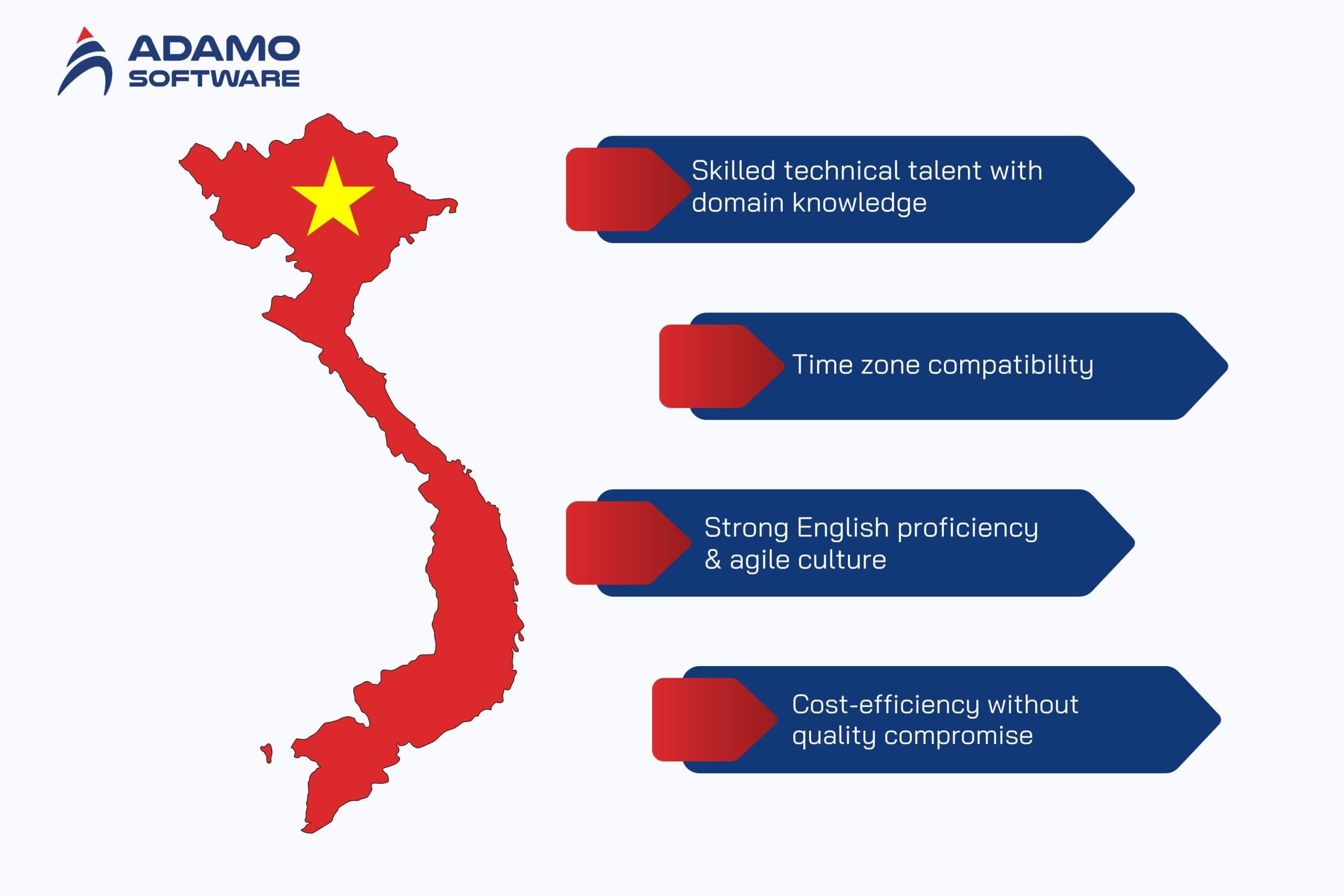
1. Skilled technical talent with domain knowledge
Adamo Software isn’t new to Australian market. They are a trusted partner for Australian technology companies seeking compliant healthcare software solutions. With extensive experience working with Australian clients, Adamo has delivered successful projects such as:
- eRoam: A healthcare platform streamlining patient mobility and care coordination.
- Adventium: A medical software solution enhancing operational efficiency.
- Snack Proud: A health-focused app integrating dietary tracking with compliance features.
- Torkirion: A telehealth platform prioritizing data security and interoperability.
- Airguides: A patient engagement tool aligned with privacy regulations.
- Plan Care: A care management system meeting TGA and ADHA standards.
- Made Comfy: A wellness app ensuring user-friendly design and compliance.
This experience means they understand Australian business expectations, communication styles, and legal frameworks — reducing the risk of misalignment or costly rework.
2. Time Zone Compatibility
Vietnam’s time zone (GMT+7) overlaps conveniently with Australian working hours, enabling real-time collaboration without the fatigue of late-night or early-morning meetings.
3. Strong English Proficiency & Agile Culture
Adamo’s teams work in English daily and use Agile methodologies to maintain transparency, flexibility, and speed — exactly what healthcare innovation teams need.
4. Cost-Efficiency Without Quality Compromise
Compared to local developers, outsourcing to Vietnam can reduce costs by 30–60%, freeing up your budget for compliance consultants, marketing, or clinical partnerships — without compromising software quality or compliance.
V. How Adamo Software Helped an Australian Healthcare Startup
A Sydney-based healthcare startup struggled to develop a compliant telehealth platform due to high local costs and regulatory complexity. By outsourcing to Adamo Software, they achieved:
- Cost Reduction: Saved 40% on development costs compared to an Australian team.
- Regulatory Compliance: Adamo’s expertise ensured alignment with TGA and APPs, passing audits with zero issues.
- Faster Time-to-Market: Agile development and time zone alignment enabled a 6-month delivery timeline.
- Scalability: Adamo provided a dedicated team that scaled seamlessly as project needs grew.
This success mirrors Adamo’s work on projects like Torkirion and Plan Care, proving their ability to deliver compliant, high-quality healthcare software.
VI. Embrace Outsourcing to Vietnam for Compliance Success

Healthcare software compliance in Australia is a formidable challenge, with stringent regulations, high costs, talent shortages, and cultural barriers standing in the way of innovation. However, by adopting strategic solutions—such as investing in expertise, embracing agile practices, prioritizing cybersecurity, and fostering collaboration—Australian companies can overcome these hurdles.
Outsourcing to Vietnam, particularly with a trusted partner like Adamo Software, offers a transformative solution. With their proven experience on Australian projects like Eroam, Adventium, and Plan Care, Adamo combines technical excellence, cultural alignment, and cost-effectiveness to deliver compliant healthcare software. Their ability to navigate Australia’s regulatory landscape, coupled with time zone compatibility and a collaborative approach, makes them the ideal choice for Australian technology companies.
Ready to streamline your healthcare software development journey? Partner with Adamo Software and unlock the power of Vietnam’s tech.
Contact Adamo Software today to learn how they can help you achieve compliance and drive innovation in Australia’s healthcare sector. Visit Adamo Software’s website to get started!



